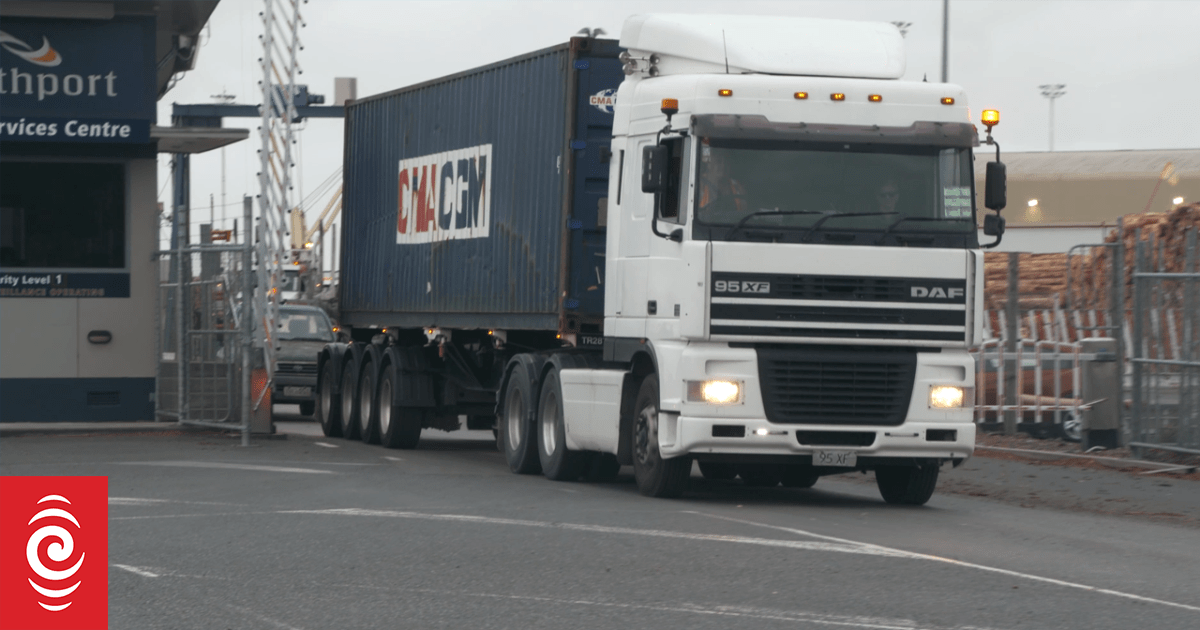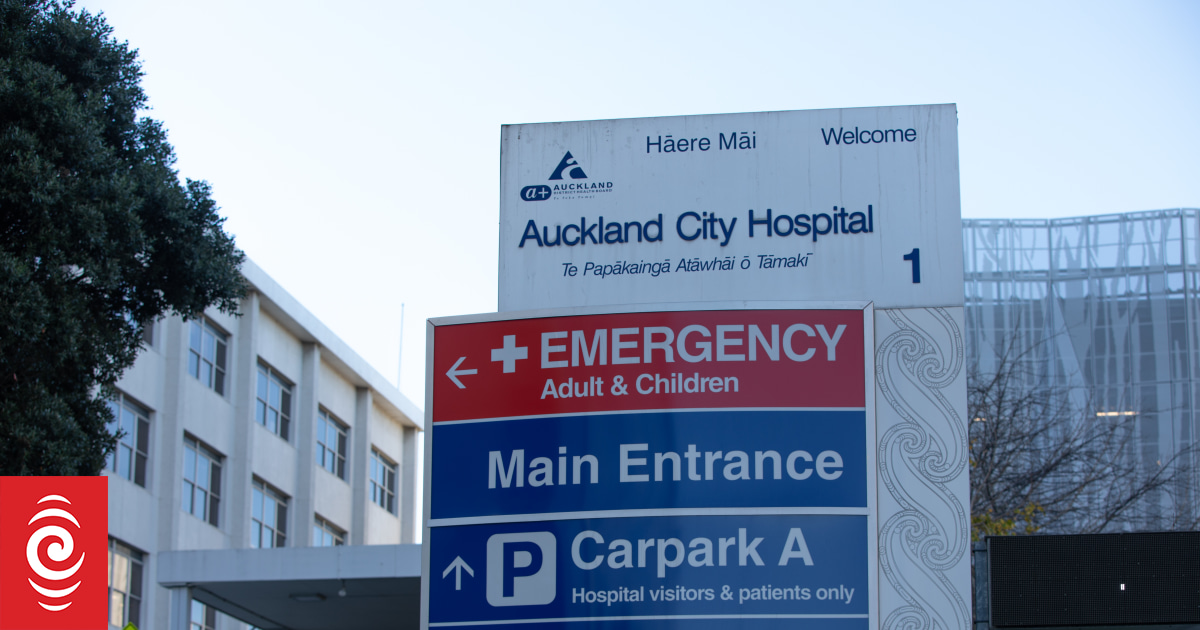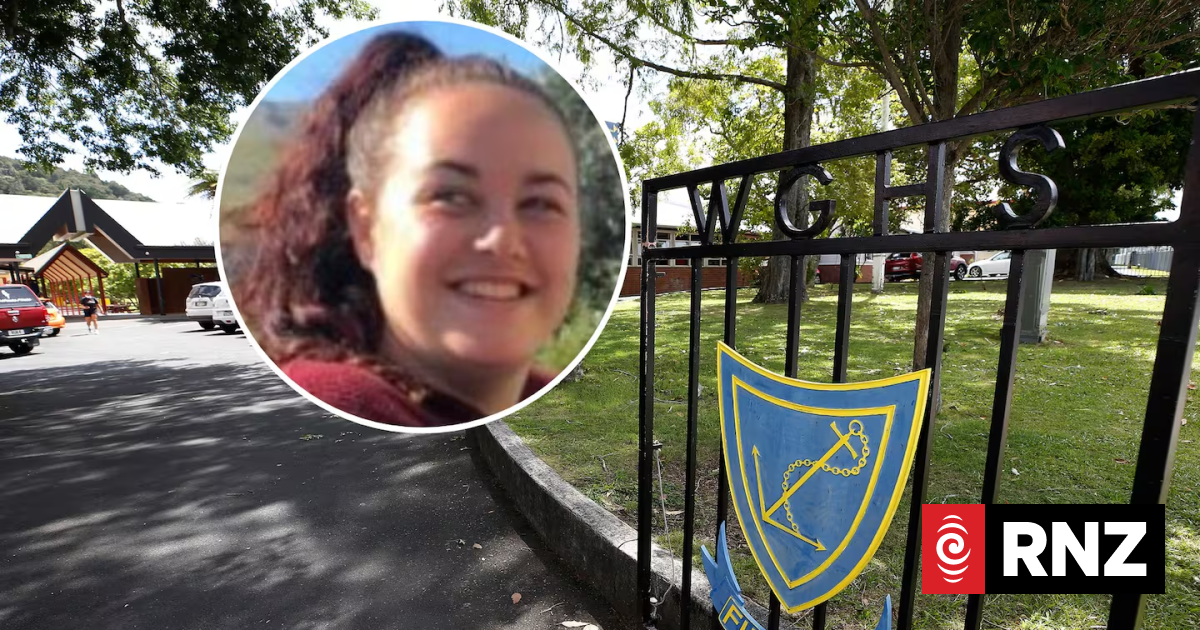
A container truck leaves Northport in Whangārei.
Photo: RNZ / Simon Rogers
A Northland hapū battling plans to expand the region’s only commercial shipping port says members were disappointed to see the project given another potential pathway through the Fast Track Approvals Bill.
Northport’s container terminal expansion is one of 149 projects selected for fast tracking and one of a number of Northland projects focused on building the region’s infrastructure.
Northport applied for resource consent for a 250 metre wharf extension, an almost 12 hectare reclamation, and 1.7 million cubic metres of dredging. The expansion would also enable the integration of the port with KiwiRail’s proposed Marsden Point spur, connecting rail and sea freight.
Its applications were denied by independent commissioners who found while a new dedicated container terminal would bring economic and social benefits, it would have adverse effects on tāngata whenua, recreation, and public access to the coast.
Northport has since lodged an appeal with the Environment Court.

Patuharakeke Te Iwi Trust Board spokesperson Juliane Chetham
Photo: SUPPLIED
Local hapū Patuharakeke Te Iwi Trust Board spokesperson Juliane Chetham told RNZ that while the decision to add the Northport expansion to the proposed Fast Track list was disappointing, she was not surprised.
“I think the the biggest problem is actually with the Fast Track Act itself. We have, along with many of our other hapu around the motu, submitted an opposition to the act.
“[It] is really prejudicial to us because the only sort of Māori provisions that are in there relate to iwi that have got settlements, basically and much of the North do not have settlements so it’s very prejudicial to the Whangārei tribes because we are not in that position yet and may be some time away.”
The overarching legislation is a clear breach of Te Tiriti o Waitangi and a retrograde step, Chetham said.
The Northport expansion’s addition to the list does not guarantee the project will go ahead. The list identifies projects the government deems worthwhile but project owners still need to apply for consideration and an expert panel must approve the application.
Despite that, Chetham said it effectively gave Northport two options to get the expansion approved – its appeal in the Environment Court and the Fast Track process.
“There is still a normal resource management pathway for the kaupapa and I’m not sure what Northport will do now they’ve got the fast track option open to them.”
“Presumably any applicant would be mad not to take it because it’s such a streamlined version that just doesn’t require anywhere near any of the checks and balances that the standard RMA process would require.”

Photo: Supplied/Patuharakeke Te Iwi Trust Board
Chetham said there was a misapprehension among the “economically leaning residents and associations” around the region who believed the hapū was completely opposed to the port expanding.
“We actually did try to have conversations around how that port expansion could be potentially redesigned.
“We weren’t saying that we were totally opposed to any type of expansion whatsoever but this expansion has been designed to just use the largest reclamation footprint possible and basically take up the entire area of beach.
“It is that last stretch of beach – lovely white sand – that’s actually a really sheltered location. Very much utilised by fisherman, by whānau taking their kids for a swim.”

Photo: RNZ / Nate McKinnon
In a statement, Northport said the decision to include it on Schedule 2 was potentially good news for Northland and for the upper North Island.
“It adds an additional consenting pathway for Northport’s board to consider, but whether this will be a viable option will depend on the final wording and provisions of the Bill.”
Northport said in the meantime, it would continue to follow the conventional resource consent decision appeal process.
“We believe firmly that the Northport container terminal expansion project has the potential to stimulate economic development in Northland and strengthen the resilience of the upper North Island and national supply chain network.”




